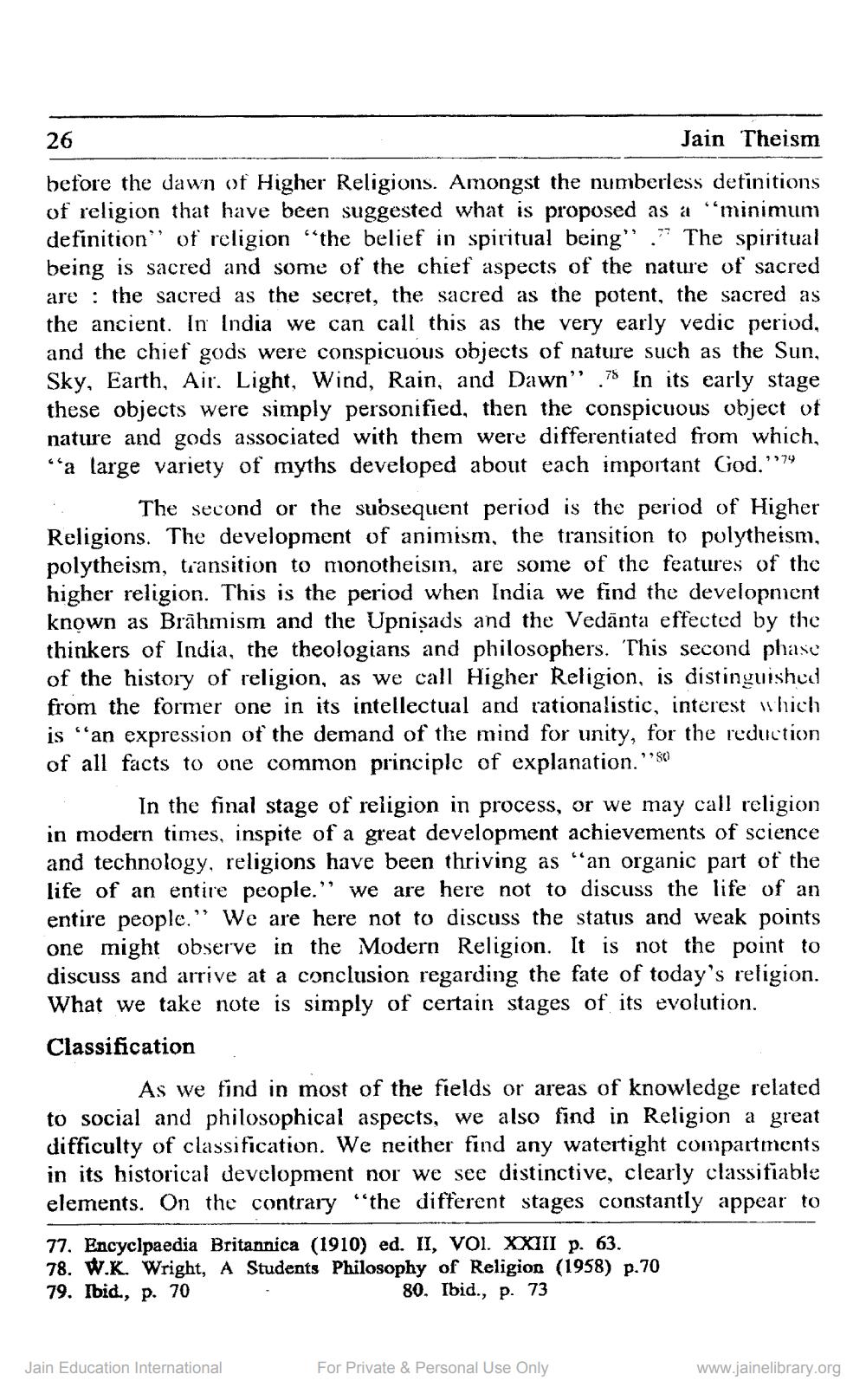________________
26
Jain Theism
before the dawn of Higher Religions. Amongst the numberless definitions of religion that have been suggested what is proposed as a "minimum definition" of religion “the belief in spiritual being","? The spiritual being is sacred and some of the chief aspects of the nature of sacred are : the sacred as the secret, the sacred as the potent, the sacred as the ancient. In India we can call this as the very early vedic period, and the chief gods were conspicuous objects of nature such as the Sun, Sky, Earth, Air, Light, Wind, Rain, and Dawn” 78 In its early stage these objects were simply personified, then the conspicuous object of nature and gods associated with them were differentiated from which, “a large variety of myths developed about each important God.'”74
The second or the subsequent period is the period of Higher Religions. The development of animism, the transition to polytheism, polytheism, transition to monotheism, are some of the features of the higher religion. This is the period when India we find the development known as Brāhmism and the Upnişads and the Vedānta effected by the thinkers of India, the theologians and philosophers. This second phase of the history of religion, as we call Higher Religion, is distinguished from the former one in its intellectual and rationalistic, interest which is “an expression of the demand of the mind for unity, for the reduction of all facts to one common principle of explanation.??$0)
In the final stage of religion in process, or we may call religion in modern times, inspite of a great development achievements of science and technology, religions have been thriving as an organic part of the life of an entire people.” We are here not to discuss the life of an entire people.” We are here not to discuss the status and weak points one might observe in the Modern Religion. It is not the point to discuss and arrive at a conclusion regarding the fate of today's religion. What we take note is simply of certain stages of its evolution. Classification
As we find in most of the fields or areas of knowledge related to social and philosophical aspects, we also find in Religion a great difficulty of classification. We neither find any watertight compartments in its historical development nor we see distinctive, clearly classifiable elements. On the contrary "the different stages constantly appear to
77. Encyclpaedia Britannica (1910) ed. II, VOI. XXIII p. 63. 78. W.K. Wright, A Students Philosophy of Religion (1958) p.70 79. Ibid., p. 70
80. Ibid., p. 73
Jain Education International
nal
For Private & Personal Use Only
www.jainelibrary.org




